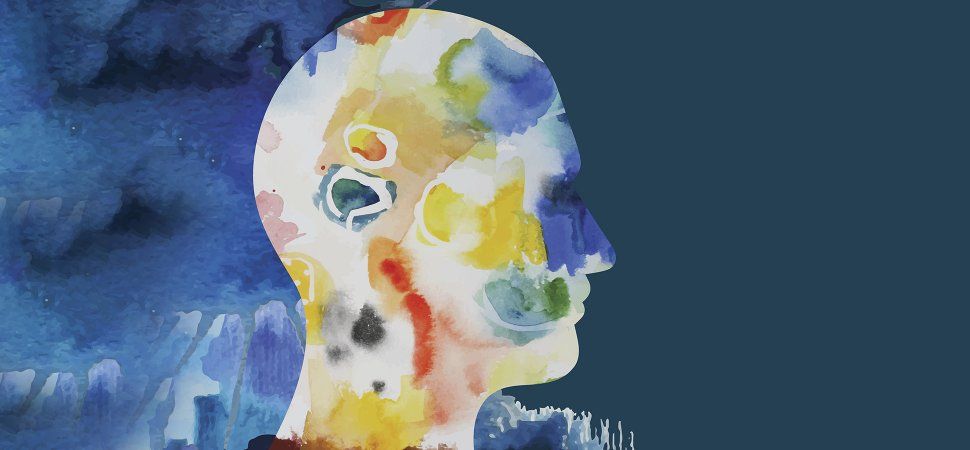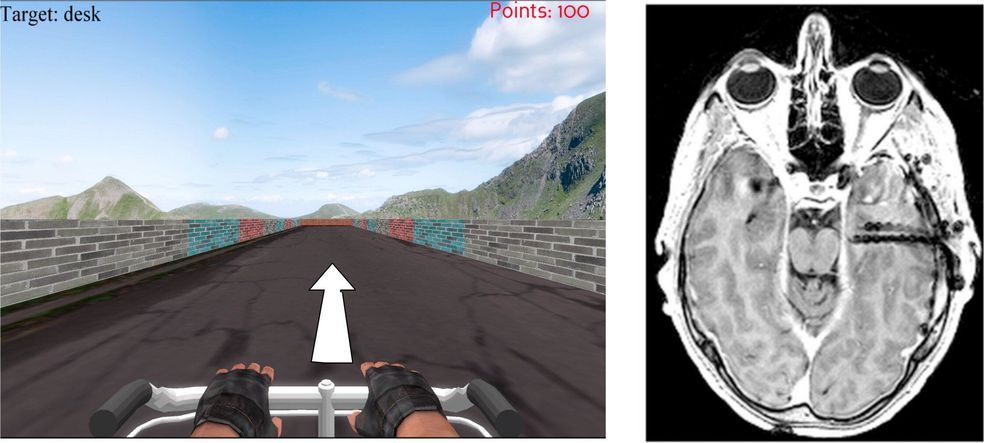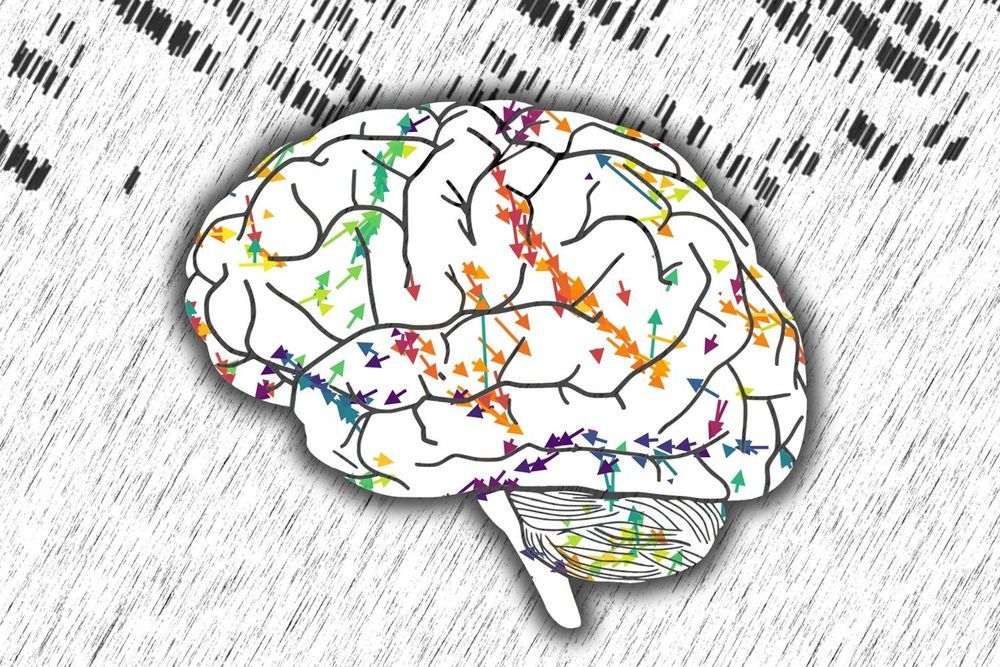Category: neuroscience – Page 1,069


Research team discovers epigenetic pathway that controls social behavior in carpenter ants
Through early adulthood, exposure to new experiences—like learning to drive a car or memorizing information for an exam—triggers change in the human brain, re-wiring neural pathways to imprint memories and modify behavior. Similar to humans, the behavior of Florida carpenter ants is not set in stone—their roles, whether it is protecting the colony or foraging for food, are determined by signals from the physical and social environment early in their life. But questions remain about how long they are vulnerable to epigenetic changes and what pathways govern social behavior in ants.
Now, a team led by researchers in the Perelman School of Medicine at the University of Pennsylvania discovered that a protein called CoRest, a neural repressor that is also found in humans, plays a central role in determining the social behavior of ants. The results, published today in Molecular Cell, also revealed that worker ants called Majors, known as “brawny” soldiers that protect colonies, can be reprogrammed to perform the foraging role—generally reserved for their sisters, the Minor ants—up to five days after they emerge as an adult ant. However, the reprogramming is ineffective at the 10-day mark, revealing how narrow the window of epigenetic plasticity is in ants.
“How behavior becomes established in humans is deeply fascinating—we know it’s quite plastic especially during childhood and early adolescence—however, of course, we cannot study or manipulate this experimentally,” said the study’s senior author Shelley Berger, Ph.D., the Daniel S. Och University Professor in the departments of Cell and Developmental Biology and Biology, and director of the Penn Epigenetics Institute. “Ants, with their complex societies and behavior, and similar plasticity, provide a wonderful laboratory model to understand the underlying mechanisms and pathways.

The gut may be the ticket to reducing chemo’s side effects
In a new study, scientists observed several simultaneous reactions in mice given a common chemotherapy drug: Their gut bacteria and tissue changed, their blood and brains showed signs of inflammation, and their behaviors suggested they were fatigued and cognitively impaired.
The research is the first to show these combined events in the context of chemotherapy, and opens the door to the possibility that regulating gut bacteria could not only calm chemo side effects like nausea and diarrhea, but also potentially lessen the memory and concentration problems many cancer survivors report.
More research is needed to further understand how the chemo-modified gut influences the brain in a way that can have an impact on behavior. The same lab at The Ohio State University is continuing mouse studies to test the relationship and running a parallel clinical trial in breast cancer patients.
Immortality Debate: Can Science Cheat Death?
Death means an end, but one recent research challenges the idea and fuels the possibility of reviving the brain. And it has plunged the scientific community into an ethical debate.
Physical movements, thoughts, and actions are traits that define how we know the difference between what’s alive and what’s lifeless i.e. death. But beyond that, we hardly understand what death means. We’ve known that death is an eventuality and irreversible. But recent research done back in April 2019 changed all that. Consequently, science is making us rethink the definition of death and the sheer fact that it is permanent.
A neuroscientist Christof Koch recently pondered over death in an article in the Scientific American. Koch wrote, “Death, this looming presence just over the horizon, is quite ill-defined from both a scientific as well as a medical point of view.”

Specific neurons that map memories now identified in the human brain
An important aspect of human memory is our ability to conjure specific moments from the vast array of experiences that have occurred in any given setting. For example, if asked to recommend a tourist itinerary for a city you have visited many times, your brain somehow enables you to selectively recall and distinguish specific memories from your different trips to provide an answer.
Studies have shown that declarative memory—the kind of memory you can consciously recall like your home address or your mother’s name—relies on healthy medial temporal lobe structures in the brain, including the hippocampus and entorhinal cortex (EC). These regions are also important for spatial cognition, demonstrated by the Nobel-Prize-winning discovery of “place cells” and “grid cells” in these regions—neurons that activate to represent specific locations in the environment during navigation (akin to a GPS). However, it has not been clear if or how this “spatial map” in the brain relates to a person’s memory of events at those locations, and how neuronal activity in these regions enables us to target a particular memory for retrieval among related experiences.
A team led by neuroengineers at Columbia Engineering has found the first evidence that individual neurons in the human brain target specific memories during recall. They studied recordings in neurosurgical patients who had electrodes implanted in their brains and examined how the patients’ brain signals corresponded to their behavior while performing a virtual-reality (VR) object-location memory task. The researchers identified “memory-trace cells” whose activity was spatially tuned to the location where subjects remembered encountering specific objects. The study is published today in Nature Neuroscience.

Natural image reconstruction from brain waves: a novel visual BCI system with native feedback
Here we hypothesize that observing the visual stimuli of different categories trigger distinct brain states that can be decoded from noninvasive EEG recordings. We introduce an effective closed-loop BCI system that reconstructs the observed or imagined stimuli images from the co-occurring brain wave parameters. The reconstructed images are presented to the subject as a visual feedback. The developed system is applicable to training BCI-naïve subjects because of the user-friendly and intuitive way the visual patterns are employed to modify the brain states.
Currently, the usage of EEG-based BCIs in assistive and rehabilitation devices mostly comes down to the following scenarios:

The Important Gut-Behavior Relationship
Both humans and mice respond to fear in ways that are deeply etched in survival mechanisms that have evolved over millions of years. Feeling afraid is part of a response that helps us to survive; we learn to respond appropriately, based on our assessment of the danger we face. Importantly, part of this response involves extinguishing fear and modifying our behavior accordingly, once we have learned that a potential threat poses little or no imminent danger. The inability to adapt to fears or lay them aside is involved in disorders such as PTSD and anxiety.
The researchers from Weill Cornell demonstrated that changes in the microbiome can result in an impaired ability to extinguish fear. This was true of two groups of mice: one group had been treated with antibiotics; the other group was raised entirely free of germs. The ability of both groups of mice to extinguish fear was compared with that of control mice whose microbiome was not altered. The difference suggested that signals from the microbiome were necessary for optimal extinction of conditioned fear responses.

The Space-Time Fabric of Brain Networks – Neuroscientists Decode Neuronal Activity
Neuroscientists at the Bernstein Center Freiburg (BCF) of the University of Freiburg and the KTH Royal Institute of Technology in Stockholm have decoded a significant process in the brain that in part contributes to the behavior of living beings. “One of the basic requirements for meaningful behavior is that networks in the brain produce precisely defined sequences of neuronal activity,” says Prof. Dr. Ad Aertsen of the University of Freiburg. The researchers have published the results of the cooperation with Professor Dr. Arvind Kumar of the KTH and Sebastian Spreizer, a doctoral candidate at the BCF, in the scientific journal PLoS Computational Biology.
Experiments in recent years have shown that the behavior of animals is accompanied by sequential activity of neurons in different areas of the brain. In the context of that finding, researchers world-wide have developed several models of possible mechanisms to explain how these ordered sequences come into existence. They are based primarily upon methods of supervised learning, in which the desired sequential activity is generated by means of a learning rule. Within this process, it turned out that neuronal networks can be trained to produce sequences of activity. “At the same time, we know that not every behavior is learned. Innate behavior suggests that the brain generates certain sequences without learning or training,” says Arvind Kumar, who directed the study.
Based on that, the researchers addressed the question of how an untrained brain can generate well-ordered sequences of activity. They found this requires two conditions to be met: First, a small portion of the neurons’ projected output – their connections to downstream neurons – have to prefer a specific direction. Second, neighboring neurons need to share that preferred direction. “That means that the connections of nerve cells depend on directional preferences and are spatially linked to each other. This is the key to the generation of sequential activity in neuronal networks,” explains Sebastian Spreizer. If the network is wired according to these rules, it creates a type of activity landscape similar to geographic hills and valleys. In the context of this metaphor, the sequences of neuronal activity are like the rivers in a landscape. Small changes in the spatial fabric of the nerve cells generate certain temporal and spatial sequences of neuronal activity.

Fingerprint test could tell if people took drugs or skipped medication
A fingerprint test developed by British scientists could tell if patients are skipping medication.
Forgetting or failing to take drugs can have serious consequences, particularly for people suffering from chronic conditions or those with mental health issues.
Non-adherence to prescribed medication is a major problem for the NHS, with some studies showing only 50 per cent of people take long-term drugs as instructed, at a cost of around £300 million in wasted medicine each year.